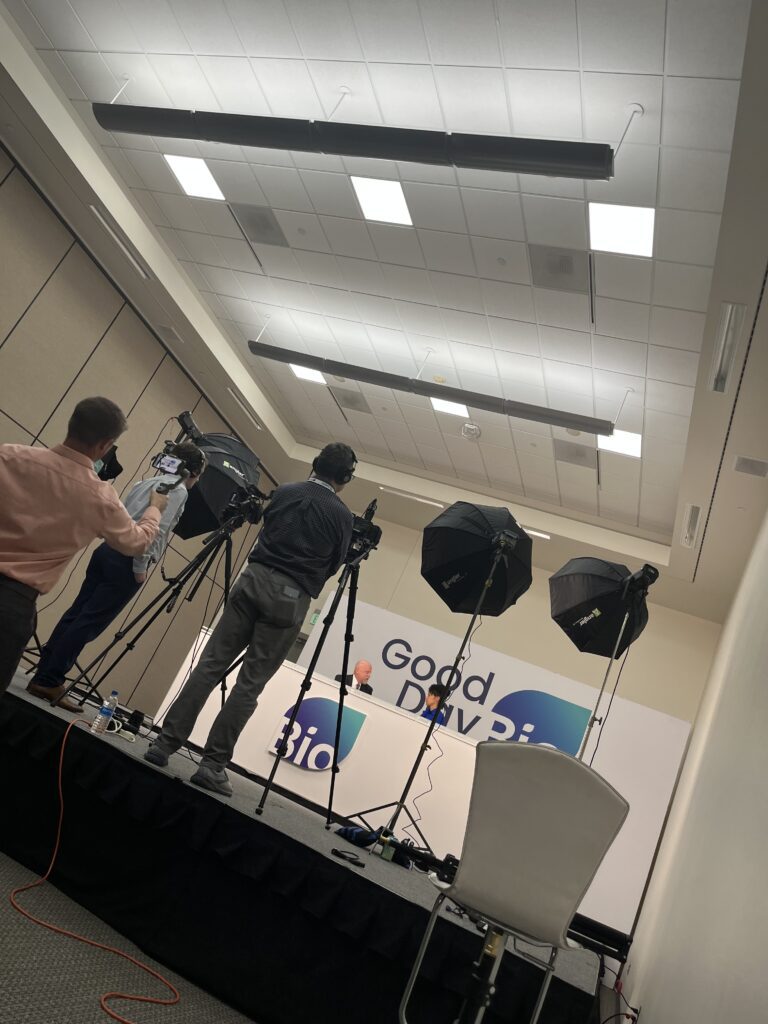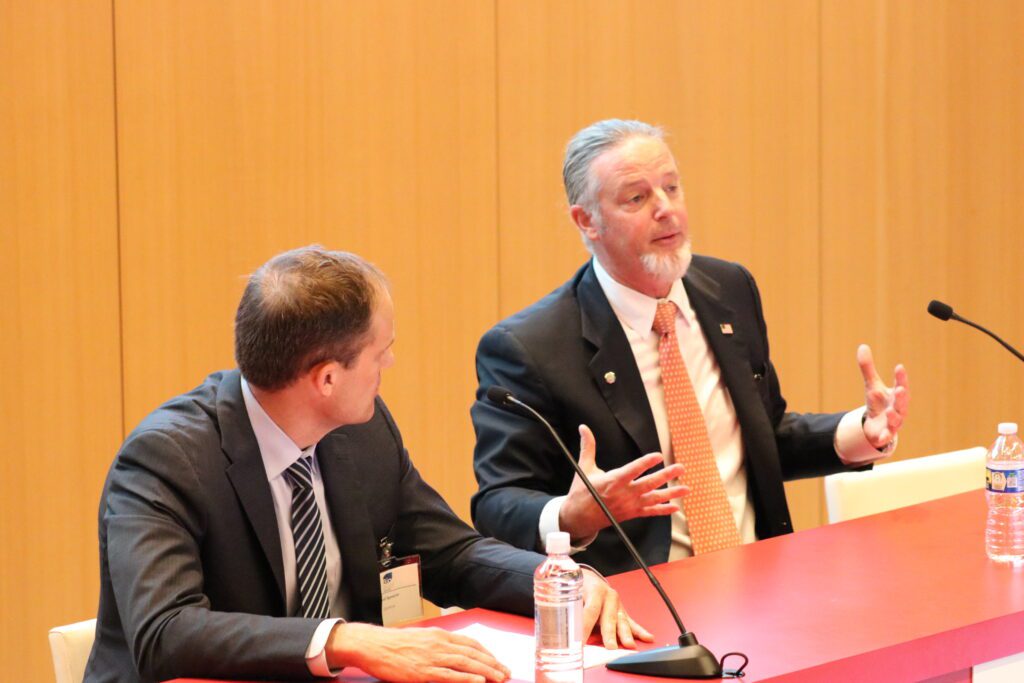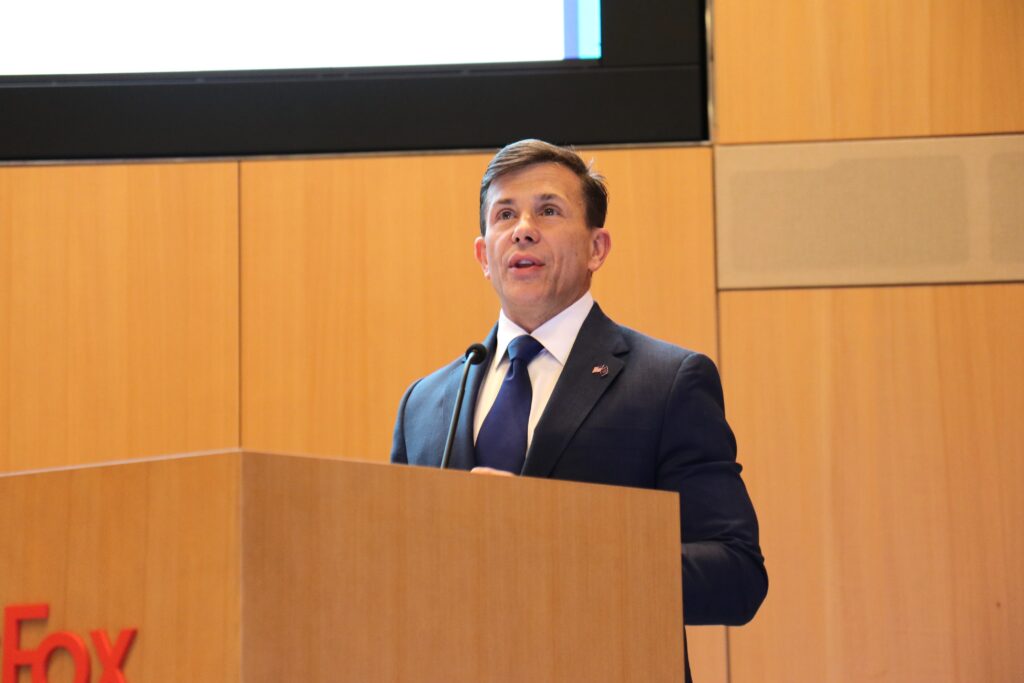On Day 2, the Good Day BIO Live team brings you exclusive interviews with Johnson & Johnson’s Pierre Theodore, Travere Therapeutics’ Eric Dube, Organon’s Kevin Ali, and more—plus, a look at BIO’s approach to news content and misinformation, and a few fun things we found on the exhibit floor.
Watch now:
Transcript BIO International Convention Day 2 – Tuesday
Welcome to day two of Good Day BIO Live coming to you from the 2022 BIO International Convention in San Diego, California. I’m Tetiana Anderson.
A flood of attendees from around the world are focusing on how biotech can help solve pressing global health issues, protect our climate, and nourish humanity. It happens by spurring innovation and creating health equity for better patient outcomes around the world.
Diversity, Equity, and Inclusion are a large part of that and a report just out from BIO and Coqual shows some industry progress. The number of women employees in biotech sector companies is going up and so are the number of employees of color. Both groups are still lagging at the executive and CEO levels. That news impacts everyone.
Eric Dube, CEO of Travere Therapeutics, tells us that diversity inside biotech boardrooms, C suites, and laboratories directly relates to diverse treatments for patients outside in the real world.
Eric Dube, CEO, Travere Therapeutics:
So, diversity, equity, and inclusion is not just about what happens in a company.
I believe that the mission of this industry is a powerful one. I believe that by having a diverse organization and by having a stated intent around DEI, it gives us the opportunity and the obligation to think about who are the communities that we’re looking to serve, making sure that there’s access not just to clinical trials, but ultimately access to our medicines – they are affordable and they are designed with their needs in mind.
When you start to disaggregate and look at individual communities separately and understand their journey and their social determinants of health, you’re going to have better insights. I believe, ultimately, we’re going to be more successful at bringing our innovation to more patients that need it.
Tetiana Anderson, host, Good Day BIO Live:
Equity and patient outcomes are both topics Pierre Theodore knows a lot about. He is the Vice President of Global Public Health at Johnson and Johnson. Earlier, I asked him what’s being done about the lack of medicine and access to state-of-the-art care in many countries around the world.
Pierre Theodore, Vice President, Global Public Health, Johnson & Johnson:
Tetiana, such an important question. There are so many factors that go into health inequity at present, everything from supply chain limitations to historical legacies of disadvantage. They make it very difficult in certain circumstances to get drugs and devices to patients who need them the most. Pharmaceutical companies have a very important role to play in overcoming those barriers, everything from how we think about R&D, to the manufacturing, to how we market and commercialize products.
Tetiana Anderson, host, Good Day BIO Live:
In Africa, for example, there’s a real lack of clinical trials being done. Can you tell us a little bit about what is happening to change that not only on that continent but in other countries around the world?
Pierre Theodore, Vice President, Global Public Health, Johnson & Johnson:
Driving improved access to clinical trials doesn’t happen spontaneously. For our business, it really does require a focus specific effort in making sure that we try to develop clinical trials in low resource settings, for example, you mentioned sub – Saharan Africa.
When we think about disease states like tuberculosis or HIV, it’s important to make sure that we are creating partnerships that allow us to launch clinical trials in which there is a broad level of diversity across all of our efforts.
Tetiana Anderson, host, Good Day BIO Live:
A huge conversation at this conference is happening around the issues of diversity, equity, and inclusion. You are an example of that. How important is that to you and what does that mean to the people who are watching you?
Pierre Theodore, Vice President, Global Public Health, Johnson & Johnson:
On the one hand, there’s the adage that in order to be it, you have to see it. But I also think that there’s an overlap between what we’re trying to achieve in terms of diversity and the ranks of those that are engaged in biopharmaceuticals, but also the equity that we’re trying to drive and the populations that we serve.
I actually think of them as, in a sense, two interrelated issues, as we drive diversity in the industry it allows us to be a more equitable healthcare sector.
Tetiana Anderson, host, Good Day BIO Live:
While women make up about half of the world, funding for women’s medical research doesn’t attract enough investment. Kevin Ali, CEO of Organon tells us that’s a missed opportunity.
Kevin Ali, CEO, Organon:
Right now is a time of investment in women’s health because, for decades, it’s gone woefully underrepresented and underfunded in terms of research and development in the space.
But we start to see some green shoots emerge. And it’s the reason that Organon, as a company, is in place and we’ve essentially just celebrated our one-year anniversary as a spin out from Merck. We’re a six-and-a-half billion-dollar business across the world. It is the fact that the time is now to invest in women’s health.
There’s new innovations in small and medium-sized companies out there. That’s why we’re here at BIO to make contact as a call to action in order for us, for other biotech companies to get in the space of developing innovations for women’s health, because now is the time to invest. And we’ve actually done five deals over the last 12 months. So, it’s been a pretty rich and fruitful time for us as a company.
Tetiana Anderson, host, Good Day BIO Live:
Drug costs are at the top of minds for many patients and their providers. If you’re looking for a good read, check out Jim Geraghty’s book “The Orphan Drug Revolution”. We talked to him about why investing in orphan drugs and rare diseases are important for everyone’s health.
Jim Geraghty, orphan drug expert and author:
A lot of people don’t realize the devastating cost that these orphan genetic diseases have. Many patients, usually diagnosed as children, are wheelchair-bound as they get older. Many of them require 24-hour care, many of them are chronically hospitalized and have emergency room visits, long in-depth hospitalizations, and multiple surgeries. The cost of all that care and the burden it takes on caregivers, parents being out of work, and so on, is often far greater than the cost of the drug.
When patients, taxpayers, and insurance company policyholders are asked what they value, what they value is, indeed, coverage of these devastating diseases. That’s the most important thing they want from their health insurance and their health insurance system.
Today, biotech innovation is under threat from many sources. If you follow the headlines there are many people agitating for price controls and price reductions on Capitol Hill and other places. What people don’t realize is for patients, what matters is not what a drug company charges, but what their insurance policies say and what patients pay or their co-pays and deductibles.
If these price reductions or price controls are put in place, the innovation is going to be stifled because investors who put in this high-risk capital will not continue to invest if they don’t see the prospect of an adequate return if a drug is successful.
Tetiana Anderson, host, Good Day BIO Live:
From biotech breakthroughs to driving health equity to diversifying companies and clinical trials, communication is key. That’s what Rich Masters of BIO says. I spoke to him earlier about the mission of BIO.news to tell the real story about what’s going on in the biotech industry.
You talked about policymakers on both sides of the aisle beating up on each other. What was going on in the news industry when it came to how they were portraying the industry that really led you to say, hey, we need to do something?
Rich Masters, Biotechnology Innovation Organization:
One of the reasons political leaders from both political parties can attack the industry repeatedly is because the news media has become so biased against the industry. And, there’s a lot of misinformation out there.
If you look at what happened with vaccines and a hesitancy to take vaccines, just that misinformation vacuum out there. BIO.news and Good Day Bio, and all of the content, the podcasts, everything we’re doing is to make sure that at least the real information is going to battle with the misinformation.
Again, it’s why we say we’re the voice of science for science. We’re battling misinformation this way.
Tetiana Anderson, host, Good Day BIO Live:
Thank you, Rich. Day one wasn’t all focused on education, though. Before we go, here’s a quick look at how attendees reconnected with colleagues and friends at the morning’s 5K race and welcome reception.
Attendee 1:
So far, I’ve met a lot of people, a lot of interesting people, and I’ve learned a lot. I’m going to be on my first panel ever, which is going to be very exciting tomorrow morning.
Attendee 2:
I appreciate being back in person. I appreciate being able to engage with a lot of people that I haven’t seen in years, a lot of people that I’ve been talking to for years, virtually, and meeting them for the first time.
Attendee 3:
Get to know these cutting-edge technologies and the future of drug discovery. It’s fascinating. This is why I’m here. I’ve already decided I’m going to Boston next year, because this is just, it’s amazing.
Tetiana Anderson, host, Good Day BIO Live:
And if you’re looking for a little bit of fun on the convention hall floor, make sure to come over to the slope booth. You can get into this racing simulator and pretend you are a real Formula One driver. This is so fun. The top five racers of the week can win a chance to drive a real car on a real race track. So you don’t want to miss out on this one. Oh wait, hold on. I crashed. I don’t have a car, everybody. Okay.
There’s a lot happening on day two. The BIO Unbound series explores gender equality and aging. Also on the schedule, former White House Press Secretary Dee Dee Meyers, who will talk about building a strong biomanufacturing workforce in the US. We’ll hear from an astronaut live from the International Space Station about microgravity and R&D. Closing out the day a town hall with FDA officials and BIO’s latest data on the emerging therapeutics pipeline.
Joe Panetta, President and CEO, Biocom California:
Hello, everyone, I’m Joe Panetta, President and CEO of Bio.com California, headquartered here in San Diego. I’d like to welcome everyone here to San Diego for the BIO 2022 Convention to the most innovative and collaborative life science community in the world.
Mike Guerra, President and CEO, California Life Sciences:
Hi, my name is Mike Guerra and I’m honored to be the president and CEO of California Life Sciences. We welcome BIO International Convention 2022 to sunny California as the birthplace of biotechnology. We are honored to have this convention back here in California again.
Tetiana Anderson, host, Good Day BIO Live:
Remember, you can get all the day’s convention highlights in Good Day BIO, on Bio.News, and right here with me on the next episode of Good Day BIO Live, it airs at 7am Pacific. And if you’re not getting Good Day BIO in your inbox, visit BIO.org or Bio.News for all the top stories. And if you’re posting on social media, don’t forget to use the #BIO2022. We’ll see you right back here tomorrow.




